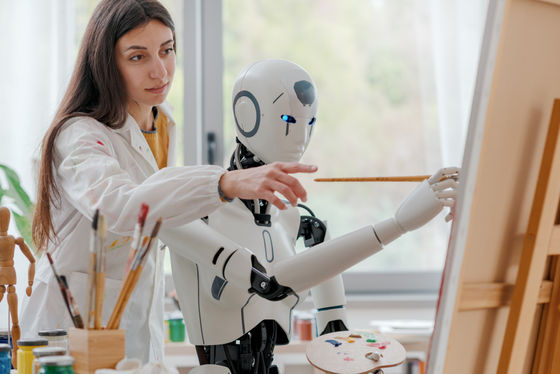An AI artist who won an art contest sues the Copyright Office, claiming that 'AI is just a tool, so any pictures drawn using the tools belong to a human.'

In August 2022, a painting output by the image generation AI 'Midjourney'
Artist appeals copyright denial for prize-winning AI-generated work
https://arstechnica.com/tech-policy/2024/10/artist-appeals-copyright-denial-for-prize-winning-ai-generated-work/
US copyright authorities and judicial systems have consistently taken the position that 'copyright can only be granted for works created by humans,' and in August 2023 a ruling was made that AI-generated works cannot be protected by copyright.
In the past, artists have obtained copyright for manga created using generative AI, but the copyright was only granted to the 'description and arrangement of visual elements,' that is, the parts other than the pictures, such as the panel layout, composition, and story.
'AI-created comic illustrations are not protected by copyright,' the U.S. Copyright Office declares, creators welcome 'great news' - GIGAZINE

As the view that AI does not have copyright grows, synthetic media artist Jason Allen has raised new questions about the nature of AI and copyright with his painting 'Théâtre D'opéra Spatial' created through the image generation AI 'Midjourney'.
Allen, who won first place in the digital art category at the 150th Colorado State Fair in August 2022, tried to register a copyright for his work, but the U.S. Copyright Office rejected his application.
The US Copyright Office refuses copyright protection for a painting that won first place in a competition created by image generation AI 'Midjourney', even after 624 prompts and Photoshop corrections - GIGAZINE

After his copyright application was rejected, Allen filed a lawsuit against the Copyright Office in September 2024. In court documents filed in the U.S. District Court for the District of Colorado (PDF file) , Allen argued that the examiner was biased and made an erroneous decision by considering 'improper factors,' such as public backlash.
In rejecting the application, the Copyright Office noted that 'Mr. Allen had no control over how the AI tool analyzed, interpreted, or responded to his prompts,' which Mr. Allen criticized as an error.
According to Allen, the Copyright Office did not take into account that Allen used Midjourney not as a random output engine, but as a tool to express the creative images in his head, or so-called 'creative intention.'
In other words, unlike previous cases in which AI itself was the subject of copyright and the court lost, Allen is arguing that AI is merely a tool, like a camera or Photoshop, and that 'things created by humans using such AI tools should be entitled to copyright as human works.'

Allen said the denial of copyright to his work has created confusion about who owns the rights to AI art, and that as AI technology rapidly permeates society, there is an urgent need to legally determine who owns the copyright in works created using AI tools.
Meanwhile, Kit Walsh, a copyright lawyer at the nonprofit Electronic Frontier Foundation (EFF), told tech news site Ars Technica, 'As a practical matter, if the final image is generated by an AI system, it's not a human work, so it seems reasonable to say that copyright doesn't exist.'
Related Posts:
in Free Member, Software, Creation, Posted by log1l_ks





